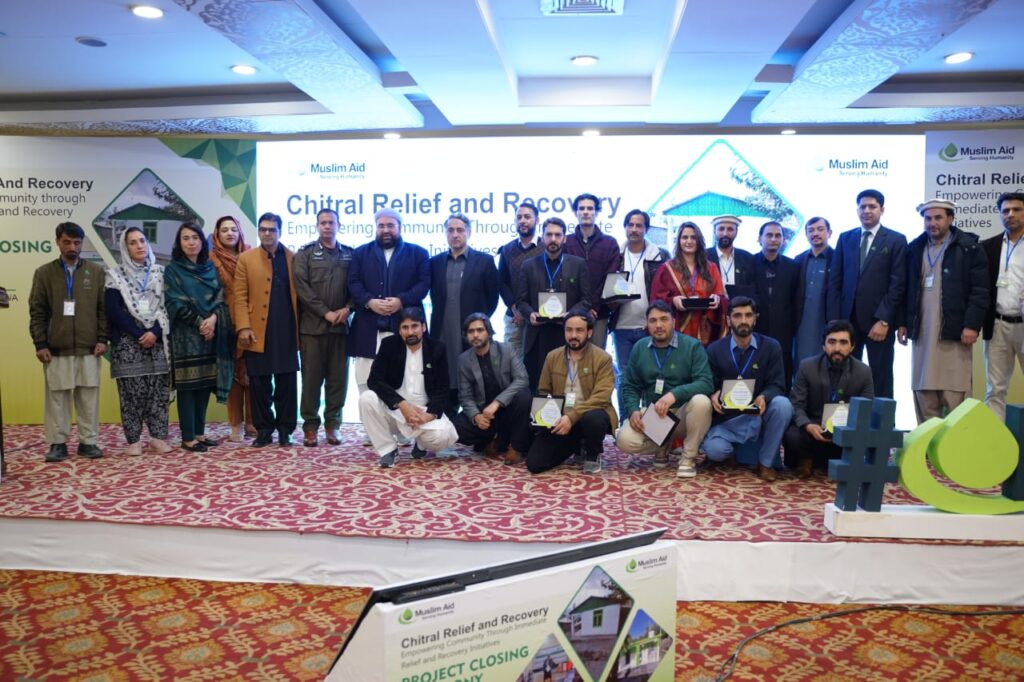Muslim Aid Pakistan has completed its flagship project, “Chitral Relief and Recovery – Empowering Communities through Immediate Relief and Recovery Initiatives,” with a closing ceremony held on Monday.
The event was attended by stakeholders, including government officials, disaster management authorities such as NDMA and PDMA Khyber Pakhtunkhwa, and representatives from local and international organizations .According to data released by Muslim Aid Pakistan, the organization constructed 50 smart houses with latrines for highly affected families in Upper and Lower Chitral. It also trained 200 women by providing economic training in embroidery and dry fruit production, along with essential toolkits.
Tobacco board closure sparks protests in khyber pakhtunkhwa
In collaboration with the Khyber Pakhtunkhwa Social Conservation Department, 1,000 fruit plants were distributed to 100 households. Additionally, the project restored eight irrigation water channels, rehabilitated WASH facilities in four healthcare centers and four schools, and repaired eight water supply schemes, ensuring access to clean water for the affected communities.Speaking at the ceremony, Provincial Minister for Auqaf, Hajj, and Religious Affairs Adnan Qadri lauded Muslim Aid Pakistan’s efforts to reach the disaster-stricken and remote areas of Chitral.
He urged the importance of community-inclusive programs and pledged the KP government’s full support for similar initiatives. “Serving humanity is a core teaching of Islam, and organizations like Muslim Aid set a remarkable example by improving the lives of vulnerable communities,” he stated.
Yousaf Rahim, Secretary of Relief, Rehabilitation, and Settlement Department, Khyber Pakhtunkhwa, expressed gratitude to Muslim Aid Pakistan for providing a “ray of hope” to flood-affected communities. He urged stakeholders to collaborate on measures to mitigate future disaster risks in the region.
Alkhidmat Foundation inagurates Women Vocational Center in Kalash
Dr. Asif Iqbal, Country Director of Muslim Aid Pakistan, highlighted the devastating impact of floods in Khyber Pakhtunkhwa and elaborated on the organization’s extensive recovery efforts. He reaffirmed Muslim Aid’s commitment to empowering communities through collaborative efforts, promoting sustainable development, and addressing future climate challenges.The beneficiaries of Muslim Aid’s initiatives expressed their gratitude for the support they received in rebuilding their lives.
The event also featured a detailed project presentation, a documentary showcasing Muslim Aid’s work, and a thought-provoking panel discussion on climate change adaptation. The discussion emphasized the importance of effective climate policies, stakeholder collaboration, and community participation in disaster preparedness.
Inheritance courts to tackle case backlogs in Khyber Pakhtunkhwa












